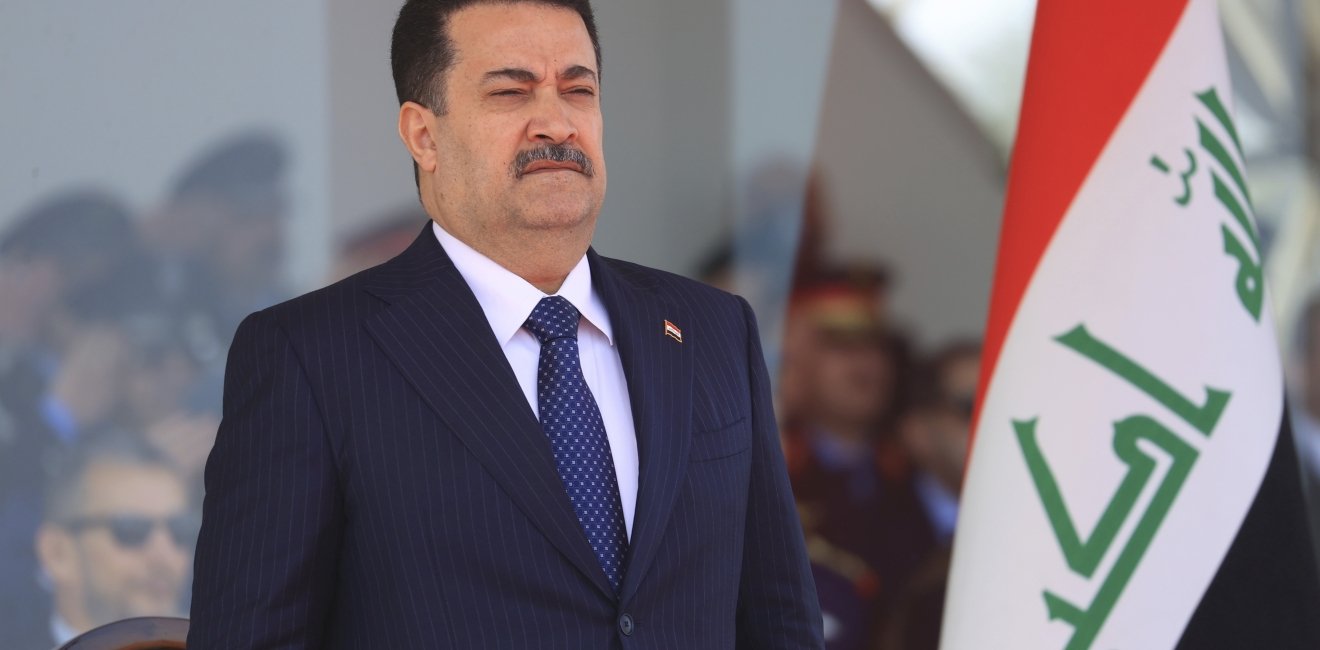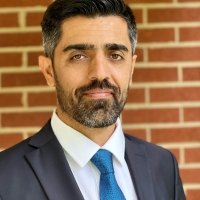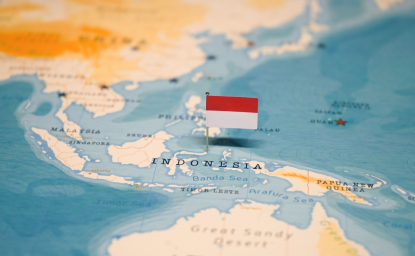Iraq is gradually coming to terms with the collapse of Bashar al-Assad's regime in Syria, engaging with the transitional government in Damascus despite its initial declarations of support for Assad. Balancing its security and economic needs amid internal divisions and regional power struggles will define Iraq's approach to Syria in the coming months.
Iraq is gradually coming to terms with the collapse of Bashar al-Assad's regime in Syria, engaging with the transitional government in Damascus despite its initial declarations of support for Assad.
The initial reactions, particularly among the Shia forces that dominate Iraq's federal government and foreign policy, were marked by alarm. When the coalition of Syrian rebel forces led by Hay'at Tahrir al-Sham captured Aleppo in late November and launched a southward offensive, Baghdad hoped the gains would be temporary and the rebels could be pushed back.
Initial security concerns
For Iraq's leadership, the rebels' advance amid the weakening of the Iran-led regional axis posed serious security concerns. The domination of rebel ranks by hardline Islamist factions with jihadist roots evoked memories of the 2012–2014 period when the Islamic State rose to power and seized a third of Iraq's territory. The prospect of Assad's fall created fears of a repeat scenario, with extremist groups exploiting the power vacuum.
In a show of support, Iraqi Prime Minister Mohammed Shia al-Sudani called Assad, affirming that Iraq and Syria's security were "closely linked" and pledging support against "terrorism," a term used to describe anti-Assad groups. National Security Advisor Qasim al-Araji added a sectarian dimension to the discourse, declaring on social media, "Zainab shall not be captured twice." This reference to Zainab bint Ali, the sister of revered Shia Imam Hussein bin Ali captured during the 7th-century Battle of Karbala by the Damascus-based Umayyads, symbolized the resolve of Iraq's Shia forces to defend Assad and Zainab's shrine in Damascus.
Protecting these sites has been a central justification for Iran and Iraqi Shia groups' intervention in Syria since the protests and subsequent armed conflict began there in 2011. On December 19, Sudani warned that attacks on Syria's holy Shia sites would have repercussions in Iraq but tempered his rhetoric by emphasizing a policy of non-intervention.
More moderate Shia voices, like former Prime Minister Haider al-Abadi's Victory Coalition, have called for humanitarian aid and political engagement. Amid the barrage of statements and the rising anxieties, reports suggested that Iraqi pro-Iran factions attempted to cross into Syria, but some sources claimed they were deterred by US warnings and the possible threat of Israeli airstrikes. As the rebels advanced, Iraq shifted its focus to strengthening border defenses. In recent years, it has begun constructing a border wall along its nearly 600-kilometer frontier with Syria to prevent ISIS infiltrations, with 400km of the wall reportedly completed so far.
Adapting to changes
Amid the evolving conditions on the ground and faced with a new reality, the Iraqi government began adopting a proactive diplomatic approach. Prime Minister Mohammed Shia al-Sudani and Foreign Minister Fuad Hussein have engaged with regional capitals to coordinate responses to the fast-paced developments. In a video message, Syria's new de-facto leader, Ahmed al-Sharaa, told Sudani that Syria's new leadership was ready to forge "strategic relations" with Iraq.
While regional powers like Turkey, Qatar, and European states sent top diplomats to meet Sharaa, Iraq dispatched its intelligence chief Hamid al-Shatri to Damascus on December 26. As a gesture of goodwill, Sharaa released several captured Iraqi militiamen to return to Iraq with Shatri. Days later, Minister Hussein contacted his new Syrian counterpart, Asaad Hassan al-Shibani, to stress Iraq’s intent to reopen its embassy in Damascus and the importance of joint efforts to combat ISIS. Shibani reassured Hussein, affirming that Iraq's security is tied to Syria's stability.
Sharaa's pragmatism, coupled with the ongoing protection of Shia holy sites such as Zainab's shrine, appears to have partially alleviated fears among Iraqi Shia leaders. On January 5, an Iraqi official announced plans to reopen the al-Qaem-Abu Kamal border crossing, facilitating the return of stranded Iraqis in Syria and Syrian refugees in Iraq. The reopening could eventually restore border trade, essential for both nations. Iraq remains a critical destination for Syrian workers due to its stronger currency and growing economy, while Syria supplies Iraq with affordable agricultural and textile products. Although Iraq halted its daily oil shipments of 30,000 barrels to Syria following Assad's fall, it could become a vital supplier again, given their proximity and Iraq's vast reserves—contingent on broader agreements.
Beyond official government positions, Iraq's response to Syria's transformation reflects deep sectarian and ethnic divisions.
Beyond official government positions, Iraq's response to Syria's transformation reflects deep sectarian and ethnic divisions. Unlike their Shia peers, Sunni leaders have largely welcomed the changes, with Parliament Speaker Mahmoud al-Mashhadani calling for "respecting the will of the Syrian people." Sunnis view the shifts as an opportunity to enhance their political standing in Baghdad against Tehran-aligned Shia factions. Kurdish leaders have also cautiously welcomed Sharaa's promises of inclusivity while remaining concerned about the fate of Syrian Kurds and their autonomous northeast region, which faces Turkish-backed attacks. According to media reports, the Kurdistan Region’s President Nechirvan Barzani might visit Damascus soon.
The developments in Syria have sparked discussions about a potential collapse of Iraq's political system, a notion that Sudani dismissed on January 5 as mere "delusions." It is still too early to draw definitive conclusions about the deeper repercussions of Syria’s developments on Iraq. However, a debate is emergingin Iraq regarding the potential impact of Assad’s fall and the broader weakening of the Iran-led regional axis on Iraq and pro-Iranian armed factions in the country. This discourse is accompanied by growing calls to dissolve these factions. Syria remains a significant concern for both Iraq and Iran. During a meeting in Tehran on January 8, Iranian President Masoud Pezeshkian and Sudani underscored the "necessity of joint work" to ensure Syria's security, stability, and territorial integrity. Given the challenges arising from developments in Syria, Iraq may even consider advocating for an extension of the US troop presence on its soil beyond the previously agreed 2026 withdrawal deadline.
Iraq's position toward Syria is still being formulated and will depend on future developments and Iraq's perceptions of threats to its security. An important factor that might influence Iraq's stance, particularly among Shia groups is Turkey. Deeply dismayed by the developments in Syria and Turkey's growing influence there, Iraqi Shia groups (and Iran) could offer support to the Syrian Democratic Forces (SDF) to counter Turkish-backed factions. The Sinjar Protection Units (YBS), a local Iraqi faction ideologically aligned with the SDF, already operate within Iraq's Popular Mobilization Forces (PMF), the coalition of mainly pro-Iran Shia armed groups that form part of Iraq's official security apparatus.
The views represented in this piece are those of the author and do not express the official position of the Wilson Center.








